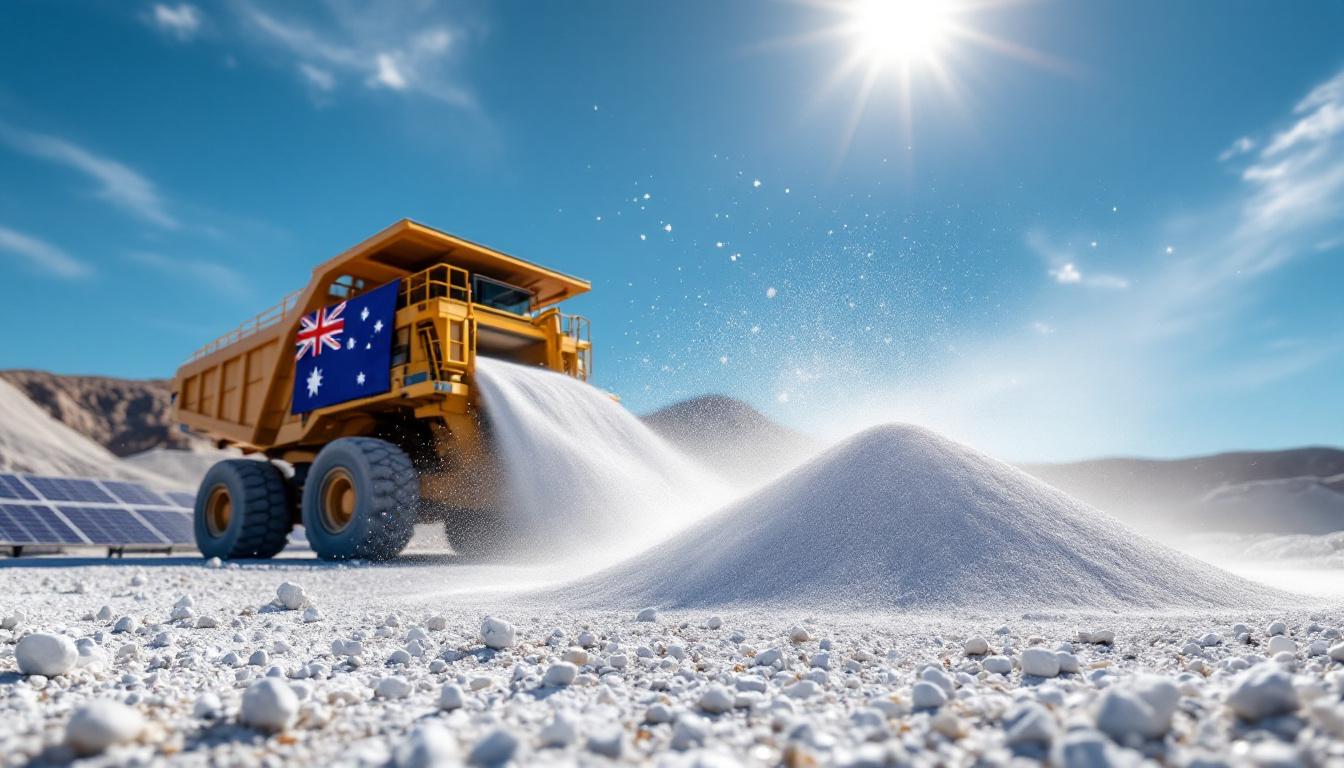What Are Zinc Concentrate Treatment Charges (TCs)?
Understanding the Role of TCs in the Zinc Supply Chain
Treatment charges (TCs) are fees paid by mining companies to smelters for converting zinc concentrate into refined metal. These charges are negotiated periodically and serve as a critical indicator of market balance between concentrate supply and smelting capacity. When concentrate availability outstrips smelter demand, TCs rise as smelters gain pricing power. Conversely, tight concentrate supplies lead to lower TCs, favoring miners.
How TCs Reflect Market Conditions
The May 2025 domestic TC increase to 3,500 yuan/mt (+50 yuan/mt MoM) and imported ore TC rise to $45/dmt (+$5/dmt MoM) reflect a cooling market after earlier rapid gains. Historically, TCs have ranged between $20–$300/dmt, with current levels indicating moderate smelter leverage. Understanding global commodities insights can provide additional context for these TC fluctuations.
What's Happening with Zinc Concentrate TCs in 2025?
Current TC Levels and Recent Trends
Domestic TCs in China grew by just 1.4% MoM in May 2025 (3,500 yuan/mt), a sharp slowdown from double-digit increases seen in Q1. Imported ore TCs similarly rose modestly to $45/dmt, constrained by miner resistance to higher charges. This deceleration contrasts with the 36.62% YoY surge in Q1 imports (1.2178 million mt), which initially pressured TCs upward.
The Slowing Growth Rate: Key Statistical Evidence
The May 2025 TC growth rate of 50 yuan/mt is the smallest monthly increase since December 2024, signaling market equilibrium. Smelters' improved profitability—driven by higher sulfuric acid prices—has reduced their urgency to push TCs further, while miners face profit compression from declining zinc prices. This situation is reminiscent of trends seen in the copper price dynamics where market equilibrium similarly affects pricing.
Why Are TC Growth Rates Slowing Down?
Supply-Side Factors Affecting Zinc Concentrate
Domestic zinc concentrate production rebounded seasonally from March to May 2025, aligning with historical patterns of post-winter resumption. Meanwhile, Q1 2025 imports remained steady at Q4 2024 levels, ensuring consistent feedstock for smelters.
Import Dynamics and Global Supply
China's Q1 2025 zinc concentrate imports totaled 1.2178 million mt, sustaining the supply chain despite slower TC growth. The stability of these imports, primarily from established mining regions, has mitigated upward pressure on TCs. Some analysts are beginning to question whether this situation signals the start of a new commodity super-cycle affecting base metals.
Demand-Side Pressures on TC Negotiations
Smelter profitability improved in March–April 2025 due to:
- Higher sulfuric acid prices (a smelting byproduct)
- Increased refined zinc output, which grew MoM in April
This profitability reduced smelters' dependency on TC hikes, leading to stalled negotiations in May.
How Are Miners Responding to TC Increases?
Miner Profitability Analysis
Domestic miners reported profits of ~6,000 yuan/mt (metal content) in March 2025, but April's zinc price decline eroded margins by ~1,000 yuan/mt. This compression has hardened miner resistance to further TC increases, particularly as production costs remain elevated. According to recent analysis from Fastmarkets, this trend is particularly notable in China-bound concentrate shipments.
Resistance to Further TC Increases
Negotiations in May reached a stalemate, with miners refusing concessions beyond 50 yuan/mt. The profit squeeze has prioritized cost recovery over volume growth, altering traditional bargaining dynamics.
Are Zinc Concentrate TCs About to Peak?
Market Indicators Suggesting a Potential Peak
Three factors point to a TC plateau:
- Minimal MoM growth in May (+1.4% vs. +5–10% in Q1)
- Smelters' reduced urgency due to improved margins
- Balanced supply-demand from new smelting capacity (e.g., Yunnan Copper)
Supply-Demand Balance Assessment
While overseas concentrate production has expanded, domestic Chinese output remains limited to the Huoshaoyun mine. Concurrently, new smelting projects (e.g., Wanyang) are absorbing surplus concentrate, stabilizing the market. These developments align with broader mining industry predictions for 2025 that anticipated such market balancing.
What Factors Will Determine Future TC Movements?
Production Capacity Developments
Yunnan Copper and Wanyang's Q2 2025 smelter ramp-ups will test the system's ability to absorb imported ore. Their full commissioning could tilt negotiations toward miners if concentrate demand surges.
Maintenance Schedules and Their Impact
Planned May 2025 smelter maintenance may temporarily reduce TC pressure, but new capacity offsets this effect.
Global Supply Chain Considerations
Overseas concentrate output growth in 2025 must align with Chinese import logistics to avoid bottlenecks. Delays or oversupply could reignite TC volatility. Recent reports from Metal.com suggest that logistics constraints are already becoming a factor in some supply regions.
What's the Outlook for Zinc Concentrate TCs in 2025?
Short-Term Projections (Next 1–3 Months)
TCs are likely to stabilize near 3,500–3,600 yuan/mt domestically and $45–$50/dmt for imports, as negotiations focus on marginal adjustments rather than steep hikes.
Medium-Term Outlook (3–6 Months)
New smelting capacity and sustained imports may narrow TC gains to 2–3% MoM, with downside risks from zinc price fluctuations. Market participants should also monitor iron ore volatility as an indicator of broader base metal trends.
Key Metrics to Monitor
- Imported ore arrival volumes
- Ramp-up efficiency at Yunnan Copper/Wanyang
- Zinc price stability (LME/SHFE)
- Sulfuric acid market trends
FAQ: Zinc Concentrate Treatment Charges
What factors typically cause zinc concentrate TCs to increase?
TCs rise when concentrate supply exceeds smelter capacity, often due to mining expansions or smelter outages.
How do TCs affect different industry participants?
Higher TCs benefit smelters by raising processing margins but reduce miners' effective revenue per ton.
What is the historical range for zinc concentrate TCs?
Imported TCs have fluctuated between $20–$300/dmt since 2000, with $45/dmt (May 2025) reflecting balanced conditions.
Further Exploration
For ongoing analysis, readers are directed to Shanghai Metal Market (SMM), which provides real-time TC data and market commentary.
Want to Stay Ahead of Major Mineral Discoveries?
Discovery Alert's proprietary Discovery IQ model delivers instant notifications when significant ASX mineral discoveries are announced, turning complex zinc and other mineral data into actionable investment insights. Explore how historic discoveries have generated substantial returns by visiting the dedicated discoveries page and start your 30-day free trial today.




